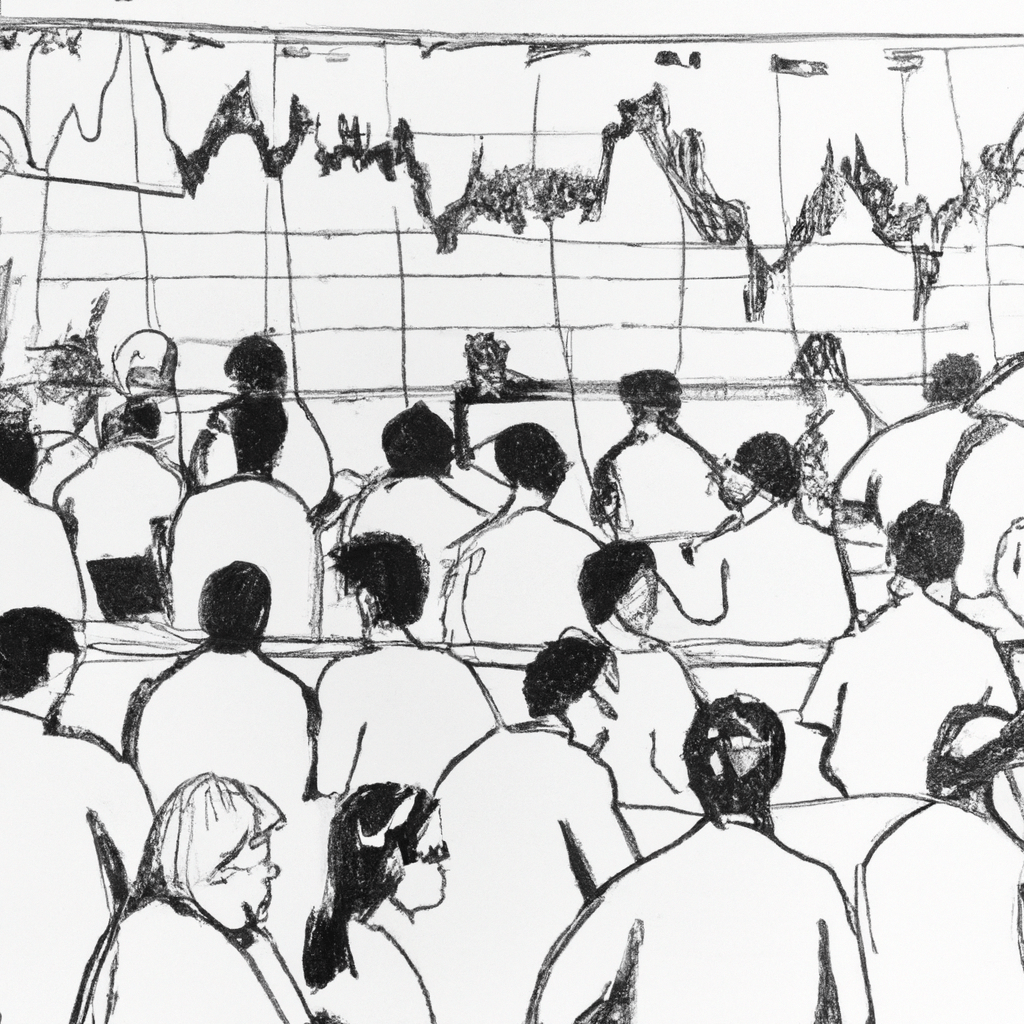In today's complex and ever-changing financial landscape, understanding the world of financial derivatives is essential for investors and traders alike. Financial derivatives, such as futures contracts and options, provide individuals with powerful tools for managing risk and maximizing returns. Whether you are a beginner looking to gain an understanding of these instruments or a seasoned trader seeking to enhance your strategies, this article serves as a comprehensive guide to financial derivatives. We will delve into the basics of futures contracts and options, explore the world of stock derivatives, and provide valuable insights and tips for success in the futures options trading market. So, if you're ready to dive into the exciting world of financial derivatives, this beginner's guide is your gateway to understanding and mastering futures & options.
1. “A Beginner’s Guide to Financial Derivatives: Understanding Futures Contracts and Options”

Financial derivatives are complex financial instruments that derive their value from an underlying asset. They are widely used in the financial markets for various purposes, including hedging against price fluctuations, speculating on future price movements, and managing risk. For beginners, understanding the basics of financial derivatives can be challenging, but it is crucial to grasp the fundamentals before venturing into the world of futures contracts and options.
One of the most common types of financial derivatives is a futures contract. A futures contract is an agreement between two parties to buy or sell an asset at a predetermined price on a specified future date. It provides investors with the opportunity to speculate on the future price of an asset without actually owning it. Futures contracts are traded on exchanges and are standardized in terms of the contract size, expiration date, and delivery location.
Options, on the other hand, are another popular form of financial derivatives. An option gives the buyer the right, but not the obligation, to buy (call option) or sell (put option) an underlying asset at a predetermined price within a specified time period. Options provide investors with flexibility and allow them to profit from both rising and falling markets. Similar to futures contracts, options are also traded on exchanges and are standardized.
For beginners, it is essential to understand the key differences between futures contracts and options. While both are derivatives, futures contracts obligate both parties to fulfill the terms of the contract upon expiration. On the other hand, options provide the buyer with the right, but not the obligation, to execute the contract. This fundamental difference makes options less risky but also potentially less profitable than futures contracts.
To engage in futures and options trading, it is crucial for beginners to have a solid understanding of the underlying asset. Whether it be stocks, commodities, or currencies, having a good knowledge of the market and the factors that influence prices is necessary to make informed trading decisions. Additionally, it is important to have a grasp of technical analysis and risk management techniques to mitigate potential losses.
In conclusion, financial derivatives, such as futures contracts and options, are powerful tools in the financial markets. For beginners, it is essential to grasp the basics and understand the key differences between these derivatives. Engaging in futures and options trading requires knowledge, research, and risk management skills. By learning the intricacies of stock derivatives and futures options trading, beginners can navigate the world of financial derivatives with confidence and potentially reap significant rewards.
2. “Exploring the World of Stock Derivatives: An Introduction to Futures and Options Trading”

Financial derivatives play a crucial role in the modern financial markets. They are complex financial instruments that derive their value from an underlying asset such as stocks, bonds, commodities, or currencies. Among these derivatives, stock derivatives, including futures and options, are widely traded and offer investors various opportunities to manage risks and enhance returns.
Futures contracts are one of the most common types of financial derivatives. They are standardized agreements to buy or sell an asset at a predetermined price on a specified future date. Futures contracts allow investors to speculate on the future price movements of the underlying asset without actually owning it. This makes them popular among traders who aim to profit from short-term price fluctuations.
Options, on the other hand, provide investors with the right, but not the obligation, to buy or sell an underlying asset at a predetermined price within a specified time period. This flexibility distinguishes options from futures contracts, as investors have the choice to exercise their options or let them expire worthless. Options can be used for various purposes, including hedging against potential losses or generating income through covered call writing.
For beginners looking to delve into the world of futures and options trading, it is essential to understand the basics. A beginner's guide to futures and options trading should start with grasping the fundamental concepts, such as the mechanics of futures contracts and options, the role of clearinghouses, and the factors influencing their pricing. It is also crucial to become familiar with the terminology associated with futures and options, including terms like strike price, expiration date, and premium.
To get started with stock derivatives trading, individuals should consider opening an account with a reputable brokerage firm that offers futures and options trading services. It is important to choose a brokerage that provides educational resources and tools tailored for beginners, as well as reliable customer support. Engaging in simulated trading or paper trading can also help beginners gain experience and confidence before risking real money.
In conclusion, exploring the world of stock derivatives, specifically futures and options trading, can be an exciting and potentially profitable endeavor for investors. However, it is crucial for beginners to gain a solid understanding of the fundamentals, learn the terminology, and choose a reliable brokerage to guide them through the process. With the right knowledge and preparation, futures and options trading can offer individuals the opportunity to diversify their portfolios and maximize their investment returns.
3. “Mastering Futures Options Trading: Strategies and Tips for Success in the Financial Derivatives Market”

When it comes to navigating the complex world of financial derivatives, futures options trading can offer substantial opportunities for investors. This article aims to provide a beginner's guide to mastering futures options trading and offers strategies and tips for success in the financial derivatives market.
A futures contract is a type of financial derivative that obligates the buyer to purchase or sell an underlying asset, such as stocks, commodities, or currencies, at a predetermined price and date in the future. Futures options, on the other hand, provide the buyer with the right, but not the obligation, to buy or sell the underlying asset at a specified price within a certain timeframe.
For beginners looking to venture into futures options trading, it is crucial to understand the fundamentals of the market. Familiarize yourself with the terminology, key players, and basic concepts related to financial derivatives. This knowledge will provide a solid foundation for making informed decisions and implementing successful trading strategies.
One essential strategy in futures options trading is to conduct thorough research and analysis. Stay updated with the latest market trends, economic indicators, and news that may impact the underlying asset of the options contract. This information will enable you to make more accurate predictions and increase your chances of profitability.
Additionally, it is crucial to develop a risk management plan. Financial derivatives, including futures options, involve inherent risks. Set clear risk tolerance levels and establish stop-loss orders to limit potential losses. Diversify your portfolio by spreading your investments across different assets and industries, reducing the impact of market volatility on your overall trading performance.
Furthermore, consider utilizing various trading strategies to maximize your potential gains. Common strategies in futures options trading include buying call options to speculate on an increase in the underlying asset's price or selling put options to generate income from the premium received. These strategies can be combined or modified according to your risk appetite and market outlook.
As a beginner, it is advisable to start with a small investment and gradually increase your exposure as you gain experience and confidence in futures options trading. Practice with virtual trading platforms or paper trading accounts to familiarize yourself with the trading process and test different strategies without risking real money.
In conclusion, futures options trading within the financial derivatives market offers immense potential for profit but also comes with certain risks. By understanding the fundamentals, conducting thorough research, implementing risk management techniques, and utilizing various strategies, beginners can increase their chances of success in futures options trading. Remember to always stay informed, adapt to changing market conditions, and continuously educate yourself to stay ahead in this dynamic and lucrative field of financial derivatives.
In conclusion, understanding financial derivatives, such as futures contracts and options, is essential for anyone looking to navigate the complex world of stock derivatives. This beginner's guide has provided a comprehensive overview of these instruments, explaining their basic concepts and introducing strategies for success in futures options trading. By familiarizing oneself with the fundamentals and continuously learning and refining strategies, individuals can confidently participate in the financial derivatives market. Whether you are a novice or an experienced trader, the knowledge gained from this article will undoubtedly contribute to your understanding of financial derivatives and enhance your ability to make informed decisions in futures and options trading. So, take the first step towards mastering the world of financial derivatives by utilizing the insights shared in this guide and embark on a profitable journey in the futures and options market.





